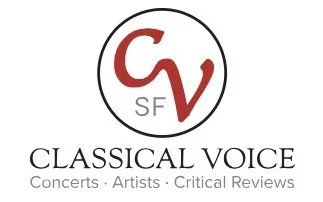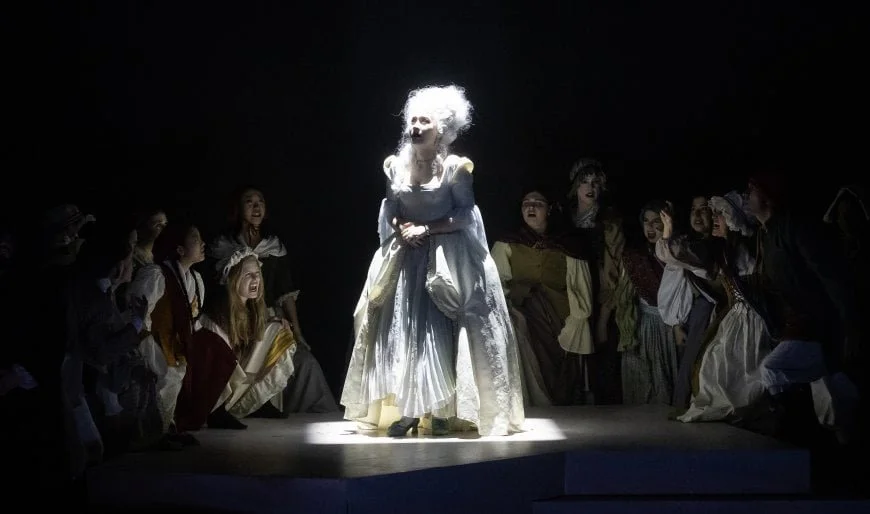Shepherd School of Music's "The Ghosts of Versailles" Reviewed on San Francisco Classical Voice
By Katelyn Simone
When the Metropolitan Opera commissioned John Corigliano to write his first opera in celebration of the company’s centennial in 1983, he pulled out all the stops. The result, premiered in 1991, was The Ghosts of Versailles, a maximalist spectacle layering Mozartian pastiche, lush romanticism, and 20th-century dissonance into storylines that swirl through time, the afterlife, and operatic history — by turns haunting, comedic, and moving.
Ghosts was an inspired choice in 2025 to commemorate another milestone: the 50th anniversary of the Shepherd School of Music at Houston’s Rice University. The school’s recent production, which opened April 11 to a sold-out house, met Corigliano’s vision with equal ambition in a compelling performance that made clear Shepherd’s educational philosophy and aspirations for the next 50 years.
As described by Joshua Winograde [director of opera studies at Shepherd], opera studies at Shepherd function as a kind of laboratory: a space where students test, integrate, and apply what they’ve learned, reflecting Rice’s broader research ethos. This production of Ghosts stood as a testament to the results — and potential — of that approach to training the next generation of artists.
Under conductor Benjamin Manis, the Shepherd School Chamber Orchestra navigated the score’s shifting styles with agility. The orchestra was most compelling in the Act 2 interlude — a musical metabolism of Marie Antoinette’s realization of Beaumarchais’ sacrifice. Solo woodwinds traded a fragile high-register motif, while declamatory brass brought clarity and resolve as she ultimately chose not to alter history. In such a dense score, some balance issues inevitably arose, particularly affecting the male singers.
Shepherd School of Music’s The Ghosts of Versailles | Credit: Lynn Lane
To read Katelyn Simone’s full feature/review, click HERE.




